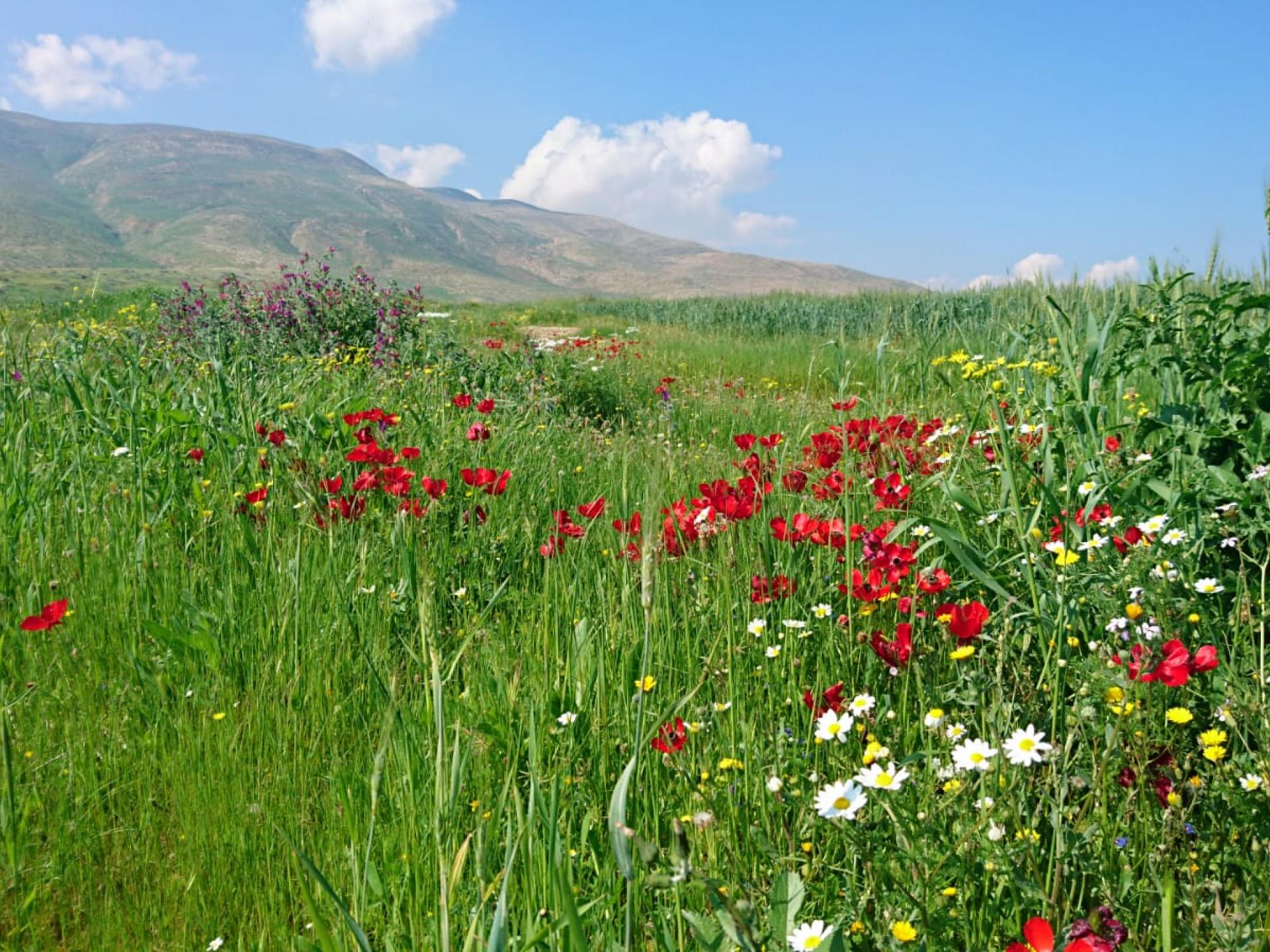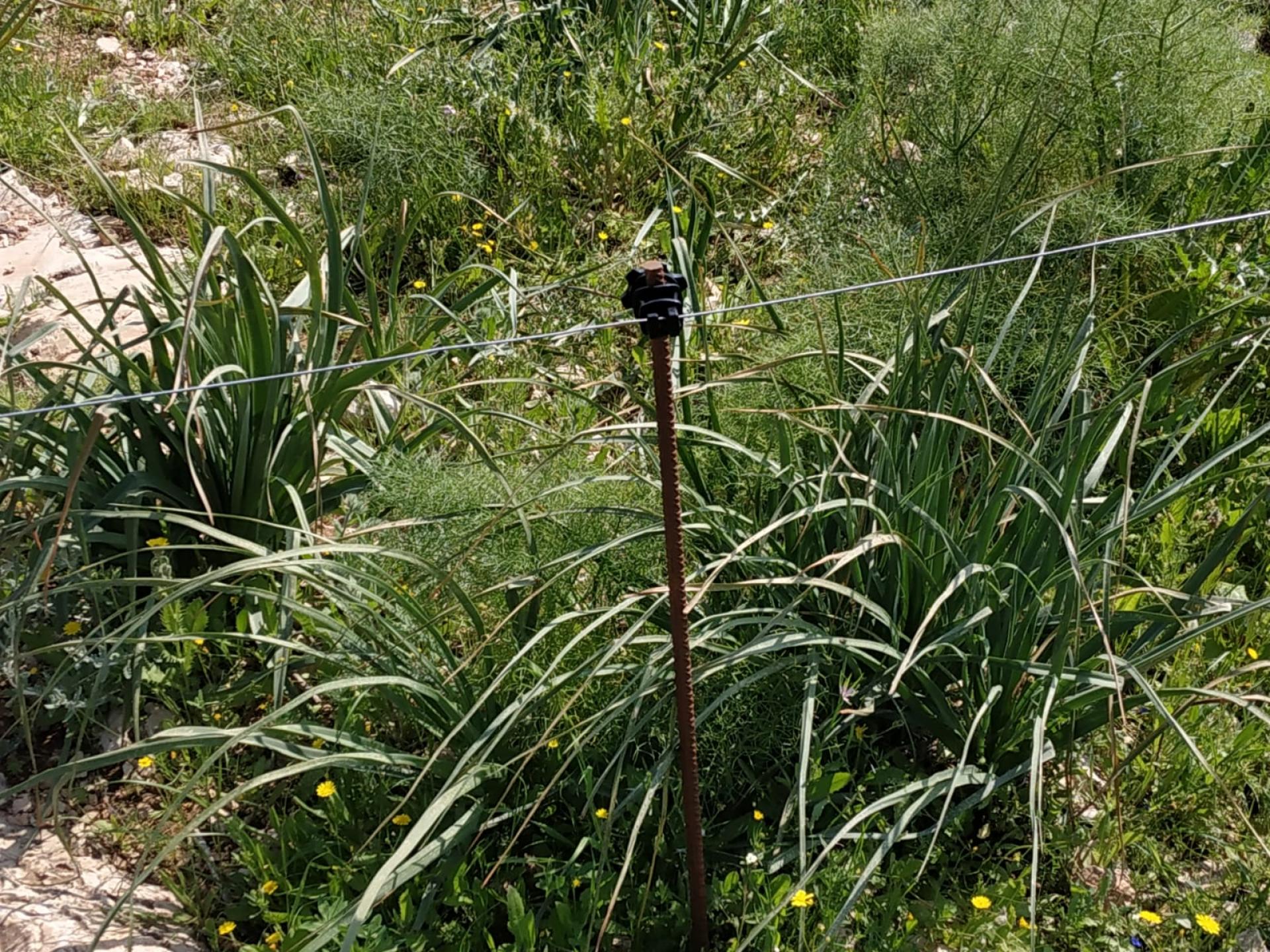Jordan Valley: Cooperation between the army, the police and the settlers


The goal: to prevent Palestinian herders from grazing their herds
Today we observed the erection of an electrified fence surrounding the Umm Zuqa nature preserve in the Jordan Valley in order to prevent the Palestinian herders to bring their cattle to the preserve. About two years ago a man, Uri, established a one-person outpost in the preserve. He has a large herd of cattle that he grazes in the preserve, along with a few “hilltop youth” who work for him.
And who’s erecting the electrified fence? That same Uri, the settlers who was issued a stop-work order two years ago, shortly after he established the outpost. And now Uri can be the only one to graze in the 22,318 dunum preserve, with no interference from all the Palestinian herders from Samra, Khalat Makchoul, Ein el Hillwe, Umm Jimal and Farsiyya.
The shepherds in the northern Jordan Valley are afraid to graze their cattle
In recent months Palestinian herders in the Jordan Valley have been attacked in order to chase them from the pastures. It’s literally terror: herders are beaten, ATVs driven recklessly to disperse the herds and frighten the herders, rocks thrown, sheep injured, and recently, in addition, they’ve started to issue indictments and arrest people. This occurs almost daily. The shepherds are afraid to take out their herds without being escorted by Israeli peace activists such as those from Ta’ayush, and others. Groups of volunteers arrive almost daily and spread out among the herding communities.
The settlers organize these attacks. A number of adults, accompanied by groups of “hilltop youths”: the settler from the Umm Zuqa outpost, the security coordinator of the Rotem settlement and the one from the Maskiyot settlement.
But what gives those people the power is cooperation from the military units in the area, and very often the police as well. When the settlers fail to chase away the herders by force they call for soldiers from army camps in the area and these arrive and order the herders to leave, with various excuses.
The Rotem settlement’s security coordinator regularly harasses herders from the neighboring Farsiyya community. He’s developed a new system – to file a complaint with the police (here’s a link to a court hearing on a complaint against one of the herders, which nothing came of).
On 13.2.19 the security coordinator beat two shepherds. One was taken by ambulance to the Tubas hospital and was hospitalized until the following day. Then the security coordinator filed a complaint against those two shepherds for supposedly attacking him. The police then cooperated with the settlements by arresting the shepherds right after the complaints were filed. They were taken to the Ariel police station for interrogation and were they brought before a judge to extend their detention for three days. They were jailed at the Huwwara base, where detainees don’t receive food. Their families, who barely make a living, must hire a lawyer privately (for a few thousand shekels). In both cases the judge rejected the police’s request to extend the detention “for additional investigation.” They were released on bail of NIS 1000 each. This, by the way, is a rare example of a military judge not agreeing to the police request. If an indictment is filed, the lawyers will be very expensive.
don’t receive food. Their families, who barely make a living, must hire a lawyer privately (for a few thousand shekels). In both cases the judge rejected the police’s request to extend the detention “for additional investigation.” They were released on bail of NIS 1000 each. This, by the way, is a rare example of a military judge not agreeing to the police request. If an indictment is filed, the lawyers will be very expensive.
How the police “serve” the Palestinian subjects
The two Palestinians beaten by the Rotem settlement’s security coordinator wanted to file a police complaint. So, how do Palestinians file a complaint to the Israeli police?
- They arrive early in the morning to the Ariel checkpoint (about 40 minutes from their homes) and request to go to the police station. They then wait 3 hours (!) until a police jeep arrives to bring them to the station.
- They wait two more hours at the police station to be received.
- They file a complaint.
- They wait two hours to be transported back to the checkpoint, though not to the checkpoint where a Palestinian vehicle is waiting for them but to a different checkpoint a few kilometers away.
Even if those who told this to me exaggerated a bit – there’s no doubt the police don’t encourage Palestinians to file complaints.
Ma’aleh Efrayim checkpoint
10:30 Soliders inspecting Palestinian vehicles coming from the west.
No soldiers at the other checkpoints.
